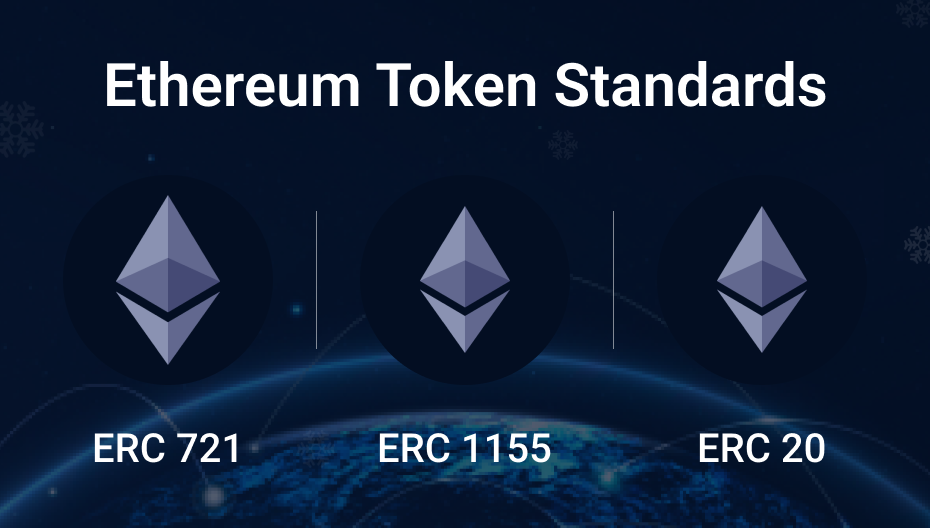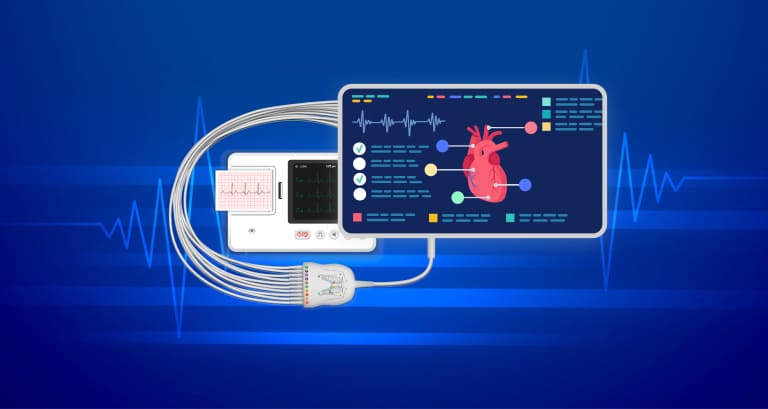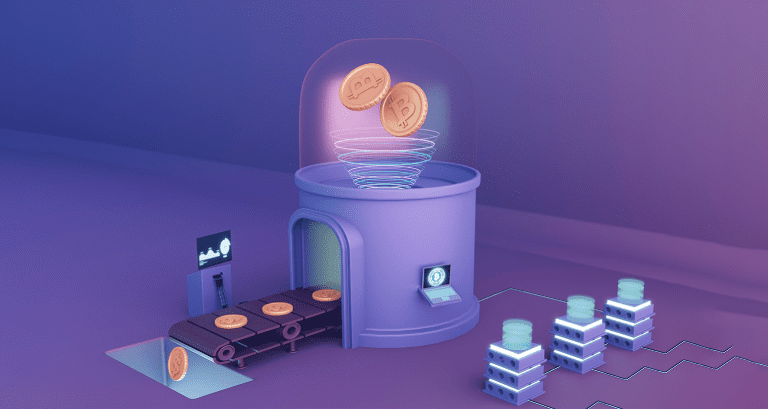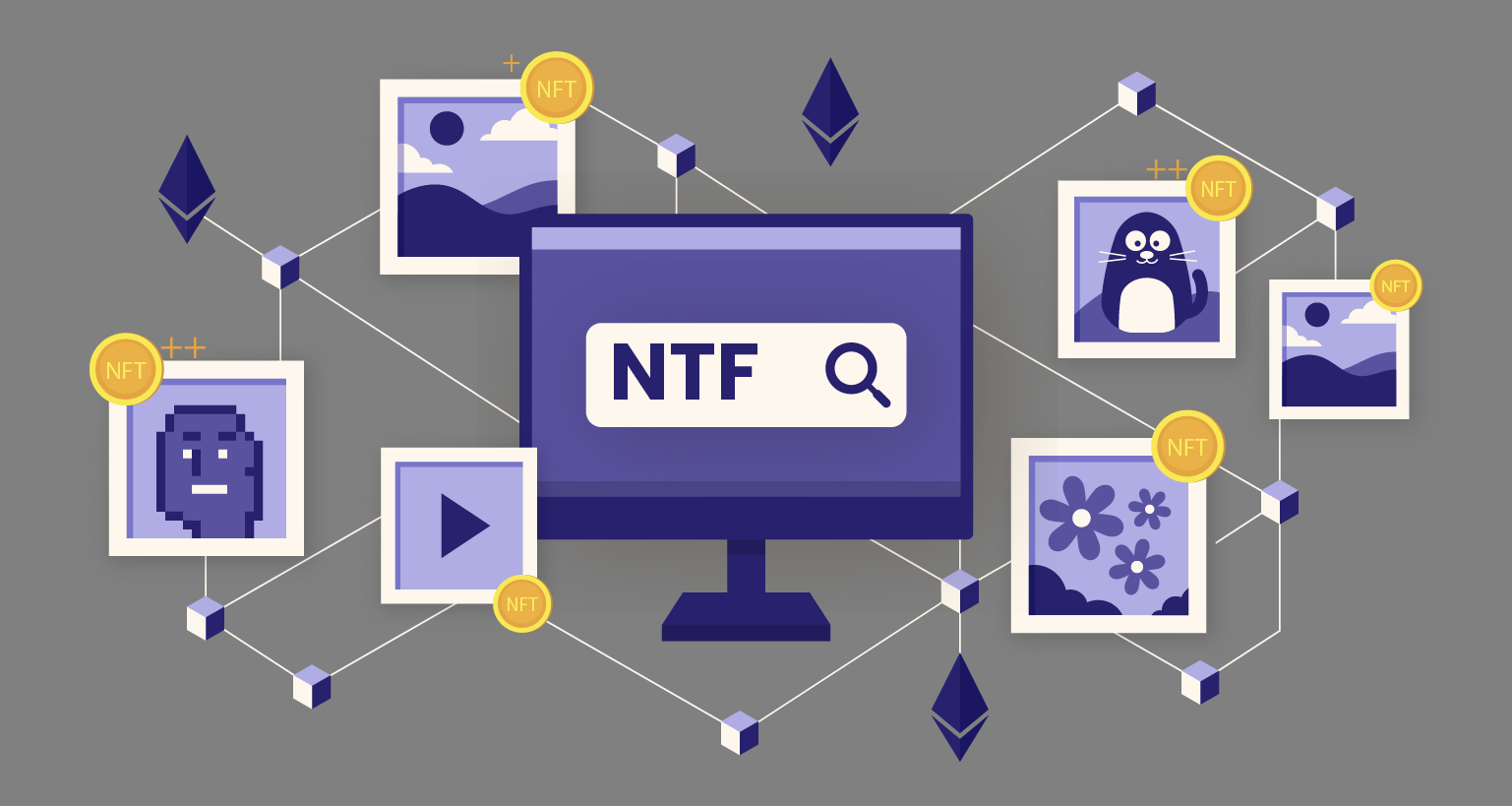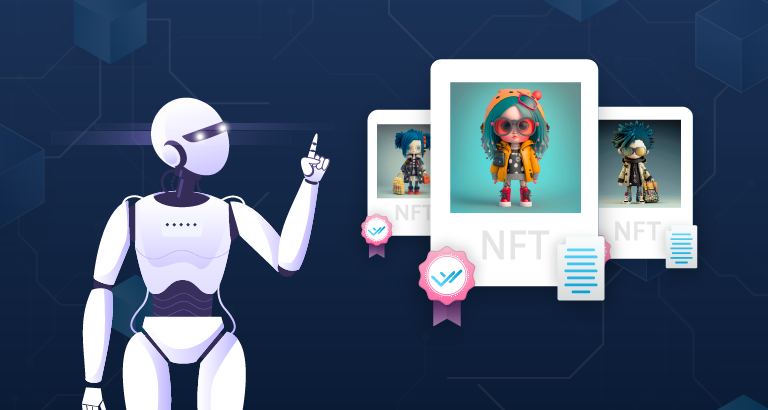Nu10 Insights
Ethereum Token Standards: ERC 721, ERC 1155, ERC 20
Want to Discuss more?

Introduction
Ethereum is called the second generation of blockchain technology. It was developed with a framework where smart contracts were developed and scripts can be written easily. A host for decentralized projects recognized for token development opportunities, where multiple projects run together at the same time. The tokens developed on the Ethereum blockchain network are used by companies as their own currencies to exchange them within the ecosystem. Ethereum’s community has set some standards to develop tokens so that they can satisfy user requirements. Ethereum has set token standards for Fungible as well as Non-fungible tokens. These Ethereum token standards play an important role in presenting the basic guidelines necessary for smart contract development. With the passage of time, these token standards have been evolved to offer better user requirements for business use.
ERC
ERC stands for “Ethereum Request For Comment”. ERC is a document that has a set of methodologies, behavior, rules, research, and innovation followed by participants or developers for using Ethereum’s ecosystem. The smart contract programmers are responsible for managing and creating ERC-related documents. From time to time updates and developments are made in the document to benefit the stakeholders of the ecosystem.
ERC Token Standards
Token standards explain the set of rules to be followed to build tokens on the Ethereum blockchain network. All the rules are cross-examined and necessary changes are done by the community members. ERC standards have been developed in such a way that it offers leverage to its users to interact easily in the ecosystem. ERC 20, ERC 721, and ERC 115 are three popular token standards that are used widely for different purposes. Attributes and functionalities are different but all of them serve multiple purposes in the blockchain industry. Smart contracts play an important role in the working of token standards in the blockchain arena.
All the rules are represented through smart contracts. Smart contract developers have to strictly follow these rules to leverage all the benefits of the ecosystem. Smart contracts contain token standards, name registries, library themes, formats, and all the related details. The development of DApps and smart contracts are supported by the Ethereum token standards. These token standards are also named smart contracts standards. These standards need to be followed for multiple purposes like token development, payment, lending, etc.
A Closer Look At Three Popular Token Standards
ERC-20 (Fungible Token Standard)
Brought forward in 2016 and got integrated into 2017, the ERC-20 token standard is known for minting tokens on the Ethereum blockchain network, specifically fungible/identical tokens. ERC-20 token standard is used to develop inter-interoperable tokens that can be used for various purposes within the Ethereum ecosystem. The robust standard of the ERC-20 token brings steadiness to the entire functionality of the blockchain network that's why they are widely used in the gaming industryAttributes of ERC-20 token
- They are fungible
- They are utility tokens
- The value of every ERC-20 token is the same irrespective of its features and functionalities
ERC-721 (Non-Fungible Token Standard)
Erc 721 is a token standard that is known for developing unique and non-fungible tokens. Every ERC-721 token has a different value and is rare. The reason behind it can be anything from its visual to its age. The tokenId of each NFT has a variable of unit256. The variable unit256 should be unique for every NFT. Thus, it can be concluded that ERC-721 plays a significant role in representing digital ownership of assets. In the case of DApps, they have a converter that adjusts the input and output process of NFTs, where tokenId is input and different (NFTs) images of zombies, collectibles, etc are output.Attributes of ERC-721 Tokens
- They are widely used as token standards for NFTs
- They are unique, rare, and one-of-a-kind
- ERC-721 tokens can be used to develop NFTs. Especially in the gaming industry for game assets as NFTs
ERC-1155 (Multi-token Standard)
ERC-1155 token standard is also called a Multi-token standard. Because it has combined attributes of ERC-20 and ERC-721 that support the development of fungible, no-fungible, and semi-fungible tokens. One common smart contract fulfills all the token standard needs. It came up as a token standard that enhances the functionality of the entire Ethereum ecosystem.Attributes of ERC-1155 Tokens
- They can be fungible, Semi-fungible, or non-fungible tokens.
- They work as ERC-20 as well as ERC-721 tokens
- They can represent a utility token, an NFT, or a combination of both.
- Use-case of ERC-1155 tokens is in developing NFTs, ICO, etc.
A Technical Comparison
| Technical Details | ERC-20 | ERC-721 | ERC-1155 |
|---|---|---|---|
| Usability | A single operation is required | A single operation is required | Multiple operations are required |
| BME Model | NA | Available | Available |
| KYC | Not required | In-built KYC/AML | In-built KYC/AML |
| Smart Contracts | One smart contract | Unique smart contract for every token | One smart contract is enough for infinite tokens |
| Transfer of Tokens | 1 to 2 tokens | 1 token every time | Easily transfers a batch of tokens |
Conclusion
The ecosystem of Ethereum is vast. The above three-mentioned tokens are currently ruling the decentralized world of Ethereum. But, web 3.0 is all about advancement and innovations. Nu10 is a crypto and Defi company that holds expertise in various services of Ethereum like Ethereum token development, DApp development on Ethereum, smart contract development, and much more! If Ethereum development services are in your mind, we will be happy to connect with you.
We are a DeFi and crypto consulting company that has experience working on various kinds of blockchain networks including Hyperledger, Cardano, Avalanche, and much more!
About Author
Mohit Kataria
Mohit is a tech-enthusiasts who have founded and built Manthan Research and Analytics, which got acquired by M3 and got rebranded to m360 Research. M3 is a $40bn+ Japanese Medical Information firm which is the youngest Nikkei 225 company. During his tenure there, it specialized in using cutting-edge advanced analytics techniques like NLP, unstructured data analytics, machine learning to drive actionable intelligence. He enjoys breaking new ground, building & scaling high-performing teams ground up, and creating new solutions.

